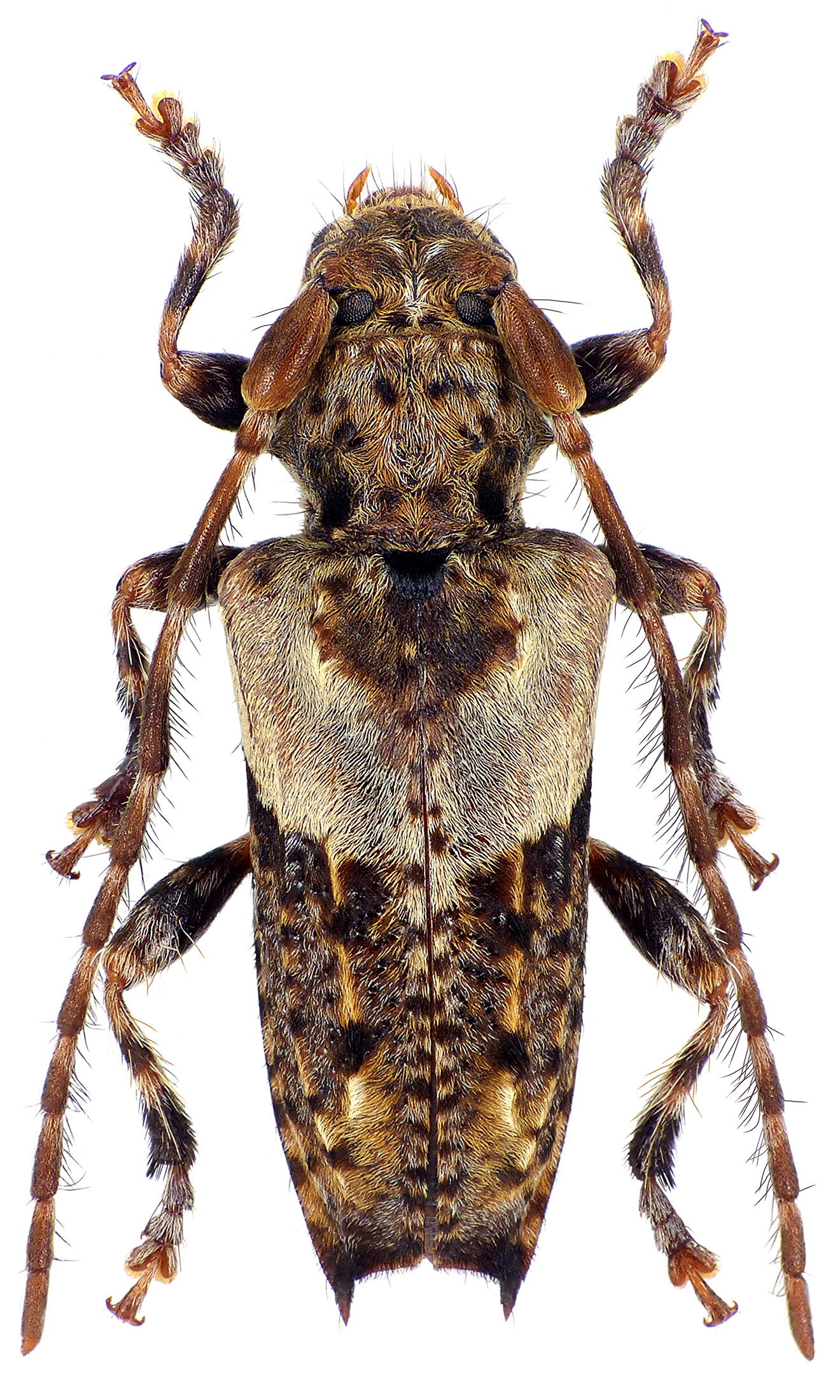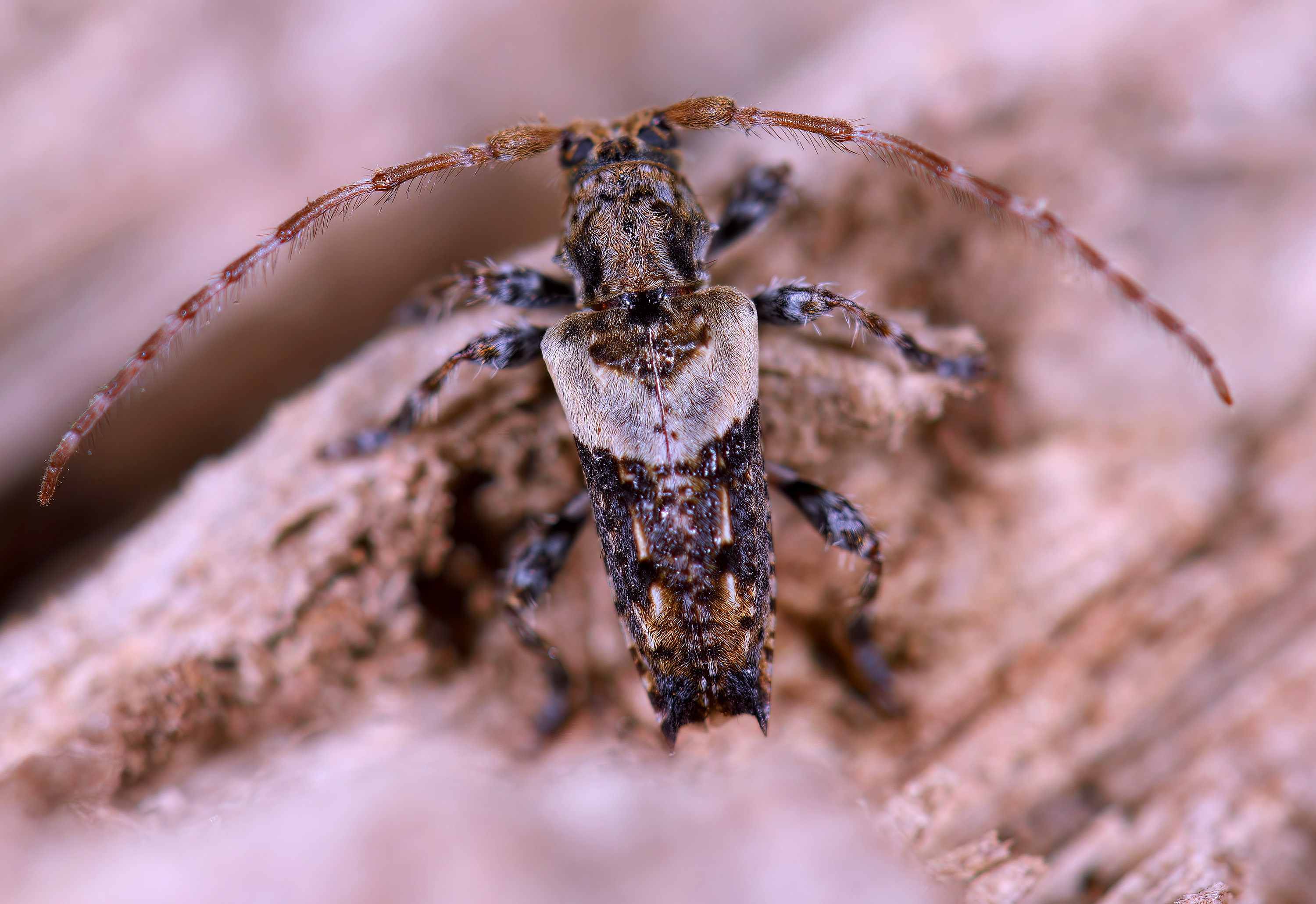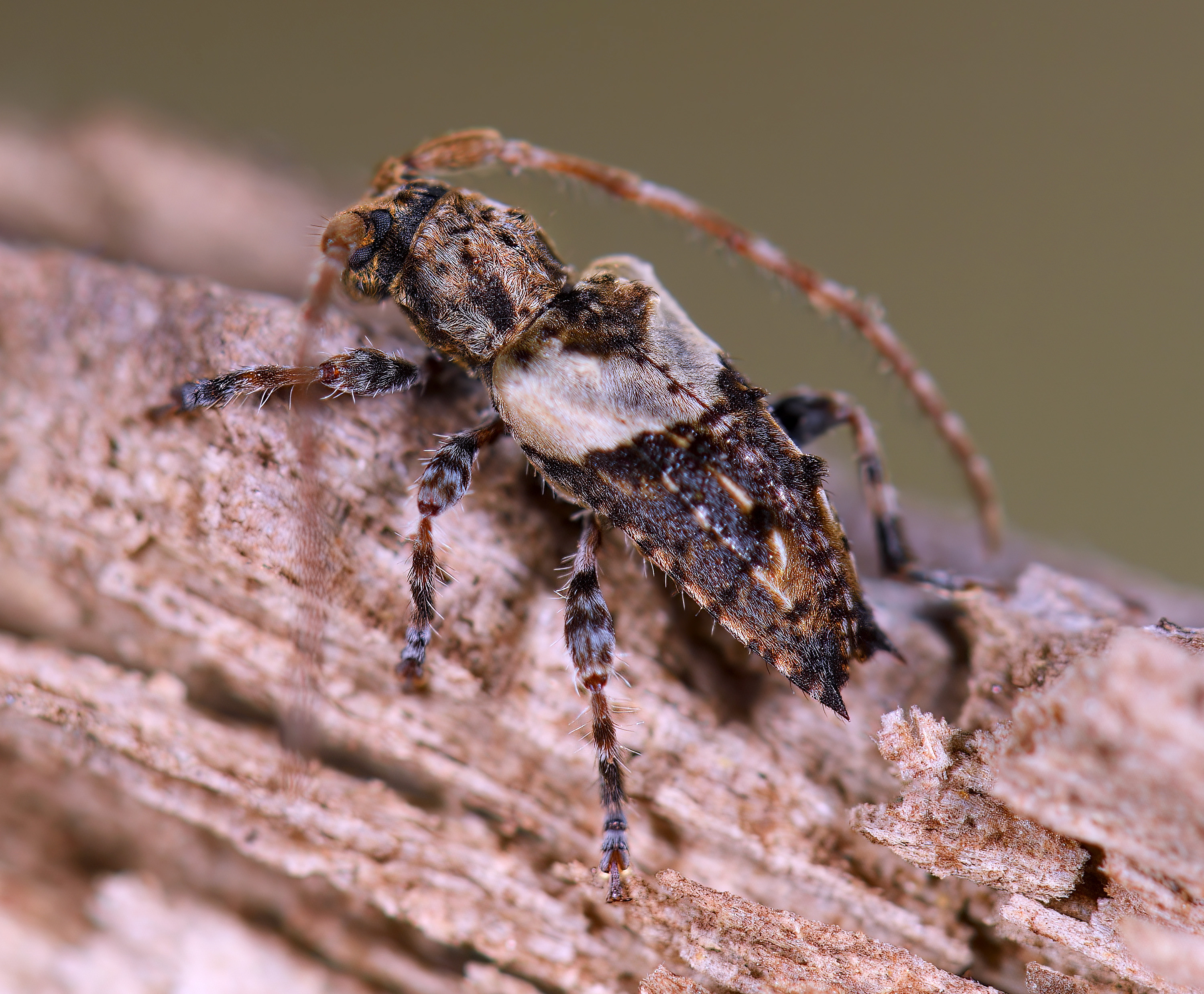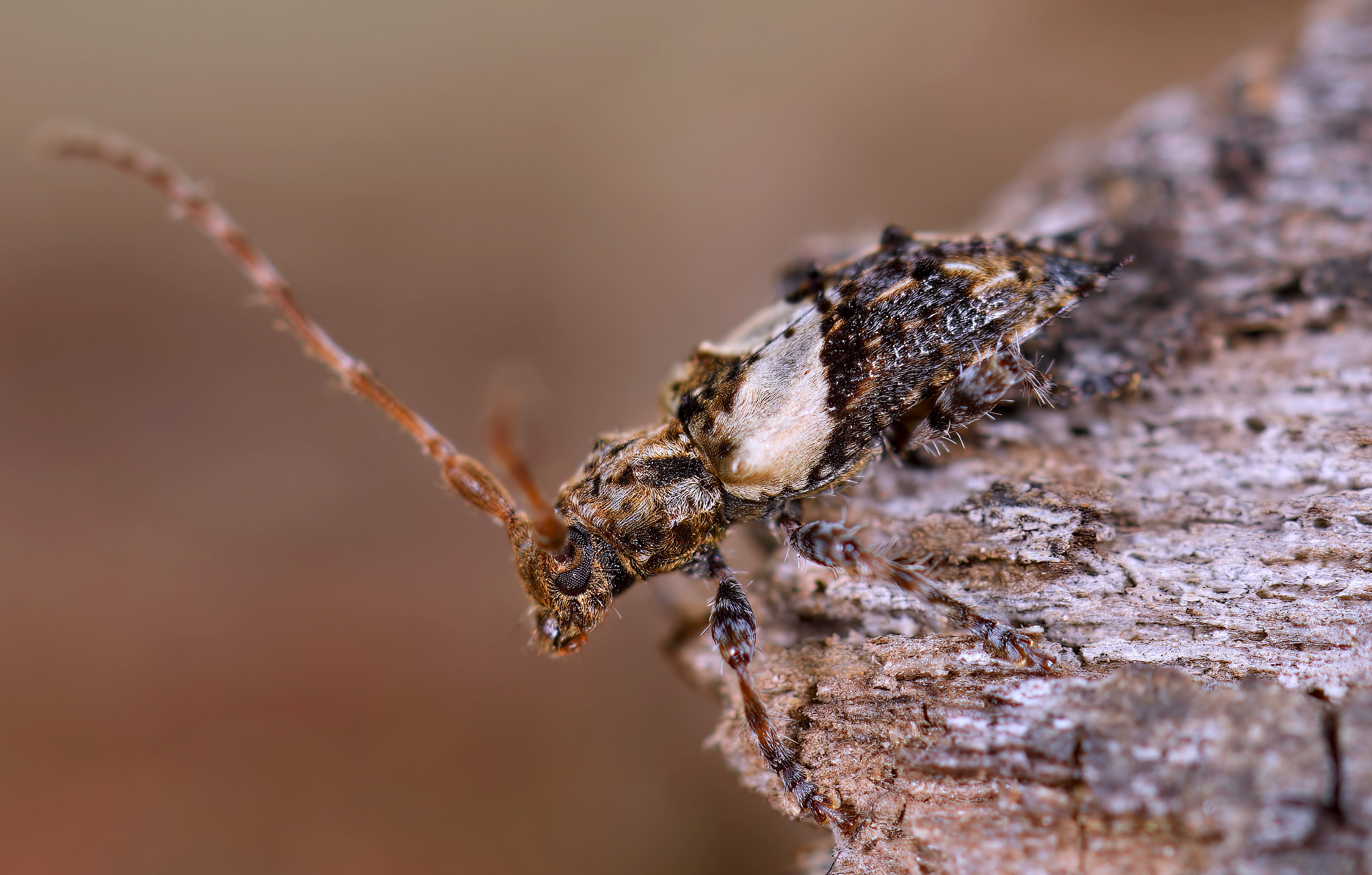Subfamilia: LAMIINAE / Tribus: POGONOCHERINI

[Photo © David Navrátil, click on the picture for 4K resolution]
Pogonocherus (Pogonocherus) pepa, a species with Baetic-Maghrebian distribution, has been described from Los Barrios (Cádiz, Spain) and North Morocco by Páez Antonio Verdugo and José Luis Torres-Méndez in 2010 [❖]. P. pepa can be distinguished from the sister species, P. hispidus (Linnaeus, 1758), by the lateral spines of the pronotum, which are basally wider and blunter and by the shape of apical pit of the terminal sternite of females. Larvae develop in dead twigs/stems (prefer diameter 1 - 2 cm) of deciduous trees and shrubs.
Body length: 6 - 8 mm Life cycle: 1 year Adults in: March - October Host plant: polyphagous in deciduous trees/shrubs (Quercus spp., Hedera helix, Nerium oleander, Rubus spp., Ceratonia siliqua, Ficus carica) Distribution: South Spain [✮], North Morroco [✳]
The depicted mounted beetles were collected in Arroyo Valdeinfierno (156 m a.s.l., Los Barrios, Campo de Gibraltar, Cádiz province, Andalusia, Spain) on September 20, 2011 / October 22, 2012. The living specimen was found in Genalguacil village environs (373 m a.s.l., Sierra Bermeja, Málaga province, Andalusia, Spain) on January 7, 2024.Collected by Páez Antonio Verdugo and Ismael Pérez
[❖]
Verdugo P.A. and Torres-Méndez J.L.:
Pogonocherus pepa sp. n., nuevo cerambícido béticomagrebi (Coleoptera: Cerambycidae: Lamiinae).
Boletín de la Sociedad Entomológica Aragonesa 46: 109-113, 2010. [download]
[✮]
Moreno-Benítez J.M., Quiñones Alarcón J., Pérez Muñoz I.:
Pogonocherus pepa Verdugo & Torres-Méndez, 2010 (Coleoptera: Cerambycidae: Lamiinae): segunda localidad para la provincia de Málaga y actualización de su distribución en Andalucía.
Revista gaditana de Entomología XV: 5-7, 2024. [download]
[✳]
Trócoli S.:
Actualización del catálogo de Longicornios de Marruecos / Actualisation du catalogue des Longicornes du Maroc (Parte IV / Partie IV : Cerambycidae : Lamiinae).
Revue de l'Association Roussillonnaise d'Entomologie (R.A.R.E.) 29 (1): 26-65, 2020. [download]



[Photo © Ismael Pérez]
| Subfamilia | Lamiinae Latreille, 1825 |
| Tribus | Pogonocherini Mulsant, 1839 |
| Genus | Pogonocherus Dejean, 1821 |
| Subgenus | Pogonocherus Dejean, 1821 |
| Species | Pogonocherus (Pogonocherus) pepa Verdugo & Torres-Méndez, 2010 |
